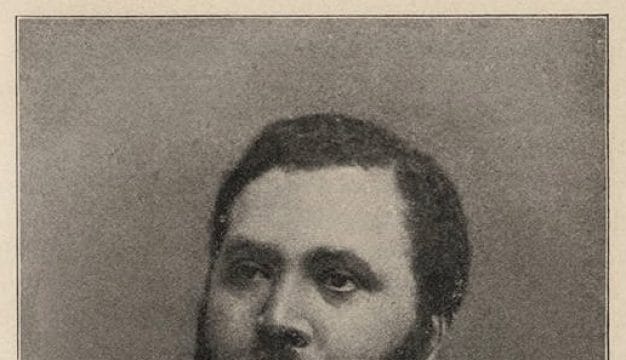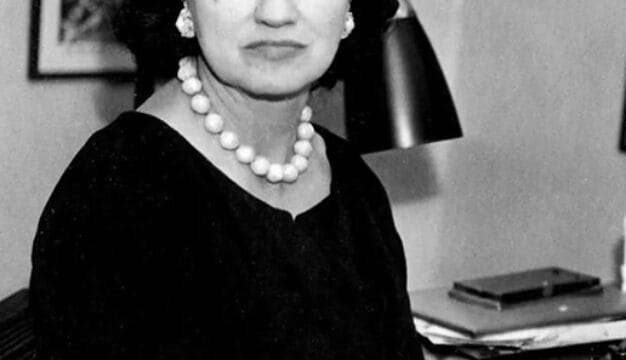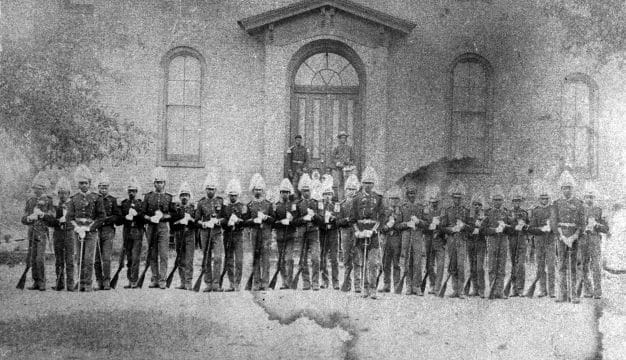Thomas Bibb (1820-21)
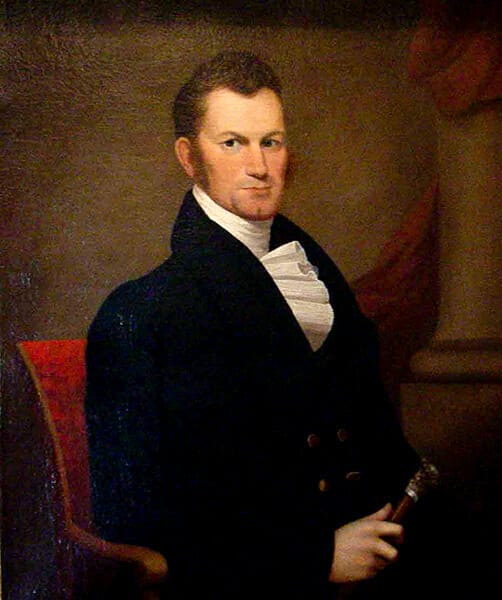 Thomas Bibb
Although Thomas Bibb (ca. 1783-1839), Alabama’s second governor, followed his brother William Wyatt Bibb as governor of Alabama, he was actually the first to settle in the frontier territory. By the time William arrived in Alabama, Thomas had become successful in business and financial interests in the newly established Huntsville and had established valuable political and economic connections with the town’s elites. Thomas’s career as a politician in the Alabama Senate and as governor was unremarkable, however.
Thomas Bibb
Although Thomas Bibb (ca. 1783-1839), Alabama’s second governor, followed his brother William Wyatt Bibb as governor of Alabama, he was actually the first to settle in the frontier territory. By the time William arrived in Alabama, Thomas had become successful in business and financial interests in the newly established Huntsville and had established valuable political and economic connections with the town’s elites. Thomas’s career as a politician in the Alabama Senate and as governor was unremarkable, however.
Thomas Bibb was born in Amelia County, Virginia, circa 1783 to Captain William Bibb, an officer in the Revolutionary army and a member of the Virginia legislature, and Sally Wyatt Bibb. The family migrated to Georgia, probably sometime in 1784, with a large number of Virginians who followed Revolutionary War general George Mathews, hero of the Battle of Brandywine. Most of Mathews’s followers were veterans like himself and their families who took advantage of the new nation’s offer of land bounties for former soldiers. They settled the rich lands around the confluence of the Broad and Savannah Rivers in northeastern Georgia, which had been ceded by the Creek and Cherokee tribes in 1773, and established tobacco farms. The Bibbs are recorded as one of the earliest pioneer families in Elbert County.
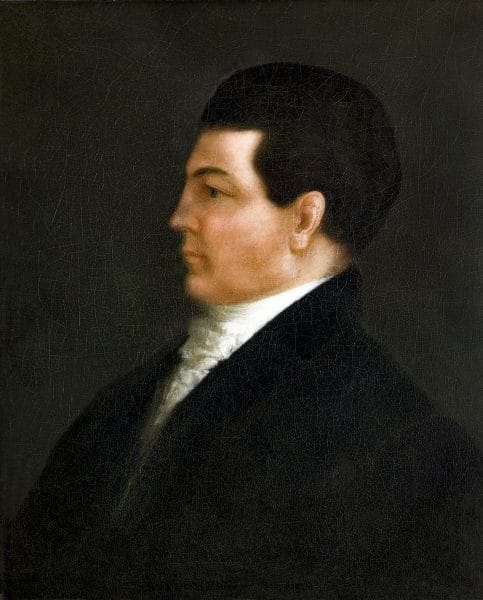 William Wyatt Bibb, 1819
William Bibb died in 1796, leaving his widow to care for eight children. Bibb left the family with enough funds to educate both Thomas and William. In 1811, Thomas left Georgia for the Mississippi Territory in what is now present-day north Alabama and settled in Madison County before establishing himself in Limestone County. He dabbled in politics upon his arrival in Alabama and in 1819 was a delegate to the constitutional convention representing Limestone County. He was elected to the State Senate and subsequently as president of the Senate. For the most part, however, Thomas concentrated on his own economic affairs as a plantation owner and merchant. He married Parmelia Thompson, whose family also had connections to Virginia’s Amelia County, and the couple had 11 children, of whom three died in infancy. Thomas’s brother William Wyatt joined him in the Alabama Territory in 1816, became its first territorial governor the following year, and became the new state’s first governor in 1819.
William Wyatt Bibb, 1819
William Bibb died in 1796, leaving his widow to care for eight children. Bibb left the family with enough funds to educate both Thomas and William. In 1811, Thomas left Georgia for the Mississippi Territory in what is now present-day north Alabama and settled in Madison County before establishing himself in Limestone County. He dabbled in politics upon his arrival in Alabama and in 1819 was a delegate to the constitutional convention representing Limestone County. He was elected to the State Senate and subsequently as president of the Senate. For the most part, however, Thomas concentrated on his own economic affairs as a plantation owner and merchant. He married Parmelia Thompson, whose family also had connections to Virginia’s Amelia County, and the couple had 11 children, of whom three died in infancy. Thomas’s brother William Wyatt joined him in the Alabama Territory in 1816, became its first territorial governor the following year, and became the new state’s first governor in 1819.
Not long after taking office, William Wyatt Bibb was confined to bed after a fall from his horse. The Alabama Constitution provided that a governor who was no longer able to serve was to be replaced by the president of the state senate, which made Thomas Bibb governor. Associates agreed that Thomas did not have his brother’s political skills, and most legislators viewed him as a caretaker governor, which limited his impact on several pressing issues. Legislators from north and south Alabama, for example, were deeply divided over whether or not to pass an apportionment bill to reallocate seats in the legislature before the state census was completed, a decision fraught with implications for the vote in 1825 on the location of the state capital.
Economic hardship that came in the wake of the Panic of 1819 also contributed to political pressures. Popular resentment toward private banks exacerbated antagonism toward the Georgia faction, known by contemporary historians as the Broad River Group, who controlled many of the banks and enjoyed large profits from the temporarily high usury rates made possible by Bibb’s support for repeal of the Mississippi Usury Act. When the privately owned banks offered depreciated bank notes in lieu of suspended specie payments in gold or silver, popular support for the creation of a state bank to alleviate the hard times increased dramatically. Thomas Bibb outlined a plan for the creation of a state banking institution but lacked the political will or power to pursue that goal to fruition. During his tenure the legislature renamed Cahawba County as Bibb County in honor of his late brother. Thomas refused to run for election in 1821, subsequently representing Limestone County in the legislature in 1828 and 1829 and serving as director of the Huntsville branch of the state bank. He died on September 20, 1839, at his Limestone County plantation, Belle Mina, and is buried in Maple Hill Cemetery in Huntsville.
Note: This entry was adapted with permission from Alabama Governors: A Political History of the State, edited by Samuel L. Webb and Margaret Armbrester (Tuscaloosa: University of Alabama Press, 2001).
Further Reading
- Abernethy, Thomas Perkins. The Formative Period in Alabama, 1815-1828. Tuscaloosa: University of Alabama Press, 1965.
- Brantley, William H. Three Capitals: A Book About the First Three Capitals of Alabama: St. Stephens, Huntsville & Cahawba. Reprint, Tuscaloosa: University of Alabama Press, 1947.
- McIntosh, John. The Official History of Elbert County, 1790-1935. 1940. Reprint, Atlanta: Cherokee Publishing, 1983.
